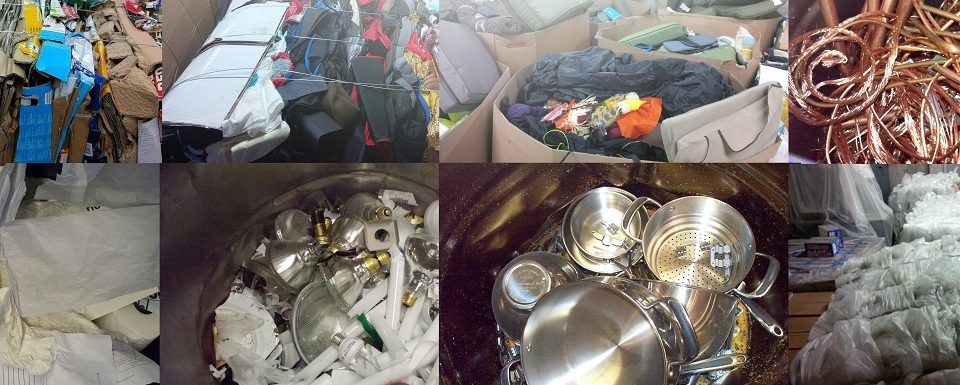Canadian Tire Corporation – Resource Recovery Centre

Projects Sponsor
Canadian Tire Distribution Centres located primarily in Brampton, Ontario overhauled a facility designed to sort and recycle damaged products from the supply chain and reverse flow processes. The overall objective of the project was to implement streams to reuse and recycle as much material as possible and avoid sending anything to landfill. It wasn’t easy – but mission accomplished – and in some innovative ways
With the major overhaul taking shape in 2014, pushing through to 2015/2016, the facility, known as the Resource Recovery Centre, is now considered the recycling hub for Canadian Tire in Canada, processing roughly 2,000 metric tonnes of recycled product annually through over 20 different recycling streams and operating at an over 98% diversion rate. .
The initial push for the project was driven by an increase in sustainability efforts through supply chain. Many opportunities were identified to properly recycle these materials which helped to meet Canadian Tire’s sustainability goals but were also backed by significant financial benefit in resource recovery value of the recyclables.
Extensive research was completed to determine the composition of the materials found in the waste stream. The site originally operated with a waste compactor and a metal compactor, clearly this was not sufficient for recycling all of the materials. With initial waste audits completed on the site, it was determined that over 20 different recycling streams could be implemented as long as right recycling partners could be found. Using an innovative waste brokerage model, Greenspace Waste Solutions was chosen to partner with Canadian Tire. Together, Greenspace Waste Solutions and Canadian Tire were able to identify reliable recyclers for all recycling streams, but this was only step one.
Building the business case for each recyclable, Canadian Tire was able to implement new machinery on site needed for the processing and consolidation of recyclables. The positive business cases developed (both in benefit to the environment, and financially), drove the purchase of new balers, a Styrofoam densifier, and new infrastructure and processes on site.
The scope of the project’s success is best measured in numbers. Prior to 2014, the facility operated at a diversion rate as low as 15%, sending roughly 1000 tonnes to landfill annually, and at a negative cost of roughly $800,000 annually. In 2015 and 2016, the program operated at an average diversion rate of 98.25%, diverting 3530 tonnes away from landfill and into recycling streams and generating $66,000 in recycling related revenue.
The project has continued to expand, opening up the program to site to their other banners (including Sport Chek, National Sports, Pro Hockey Life and Marks) and began the push from recycling, to reuse. Now, partnering with several non-profits, including The YMCA, The Knights Table, The Humane Society, Helping Homeless Pets and Habitat for Humanity the program is able to donate slightly damaged product that would otherwise be recycled.
An employee resale shop generated $243,000 in 2014 and another $375,000 over 2015 and 2016, with all proceeds going to the Canadian Tire Jumpstart charity which helps kids in financial need participate in sports.













